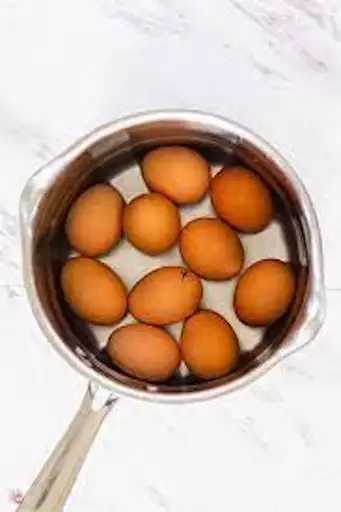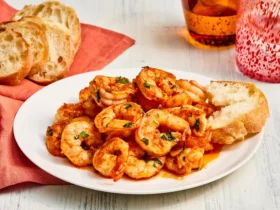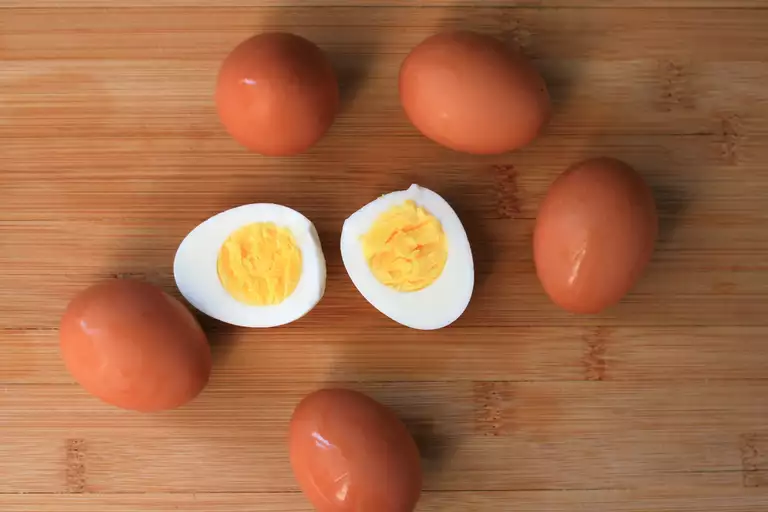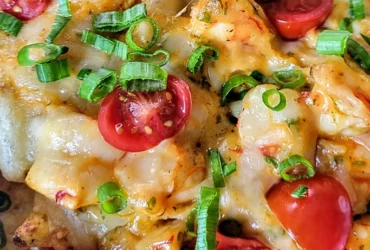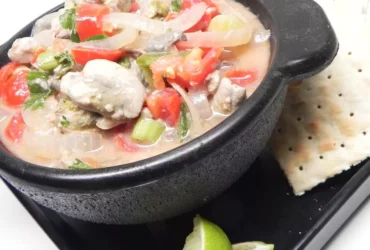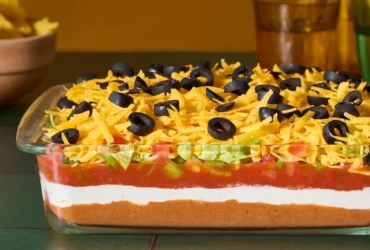Why Hard-Boiled Eggs Fail
Misconceptions About Cooking Time
The most common reason why hard-boiled eggs fail is due to overcooking, which can result from incorrect cooking times and temperatures.
Many people believe that hard-boiling an egg involves simply placing it in boiling water and waiting for a set amount of time. However, this simplistic approach often leads to undercooked or overcooked eggs, depending on the individual’s patience and timing.
The key to successfully hard-boiled eggs lies in understanding the cooking process and recognizing that even with precise timing, factors such as egg size, altitude, and personal preference can influence the outcome.
A common misconception is that 12-15 minutes is sufficient for most large-sized eggs. However, this timeframe may not account for differences in egg shape or internal temperature.
Additionally, cooking time does not directly correlate with the desired doneness. An egg may be cooked for 12-15 minutes, but if it’s overcooked, it will not have a perfectly set yolk as intended.
The ideal cooking time is actually closer to 6-7 minutes for large eggs, followed by an immediate transfer to ice water to stop the cooking process. This technique allows for even cooking and prevents overcooking.
Other factors that can affect the quality of hard-boiled eggs include egg size, altitude, and personal preference for yolk doneness. For instance, smaller or larger eggs may require less or more time respectively, while higher altitudes can prolong cooking times due to lower air pressure.
It’s also worth noting that some recipes recommend steaming instead of boiling as a way to cook hard-boiled eggs more gently and prevent overcooking. This method involves placing the eggs in a steamer basket above boiling water rather than directly into the pot, which can lead to inconsistent results if not done correctly.
Ultimately, achieving perfectly cooked hard-boiled eggs requires attention to detail and a nuanced understanding of the cooking process, including the relationship between cooking time, egg size, altitude, and personal preference for yolk doneness.
A well-made hard-boiled egg should have a fully set white but still slightly runny or melted yolk. To achieve this perfect balance of textures requires precise timing and control over the cooking process.
Eggs can be cooked to a soft boiled state in 67 minutes, but most recipes recommend cooking them for 1012 minutes to achieve a firm yolk. This prolonged cooking time can lead to overcooked eggs.
When it comes to cooking hard-boiled eggs, achieving a perfectly cooked yolk and white can be a challenge. While some recipes may recommend a lengthy cooking time to ensure doneness, this approach can often result in overcooked eggs that are less than appetizing.
The reason behind this issue lies in the physics of egg cooking. The cooking process for hard-boiled eggs involves heat transfer from the surrounding water to the egg’s interior. This process is slow and uneven, making it difficult to achieve a perfectly cooked yolk and white without overcooking certain areas of the egg.
The recommended cooking time of 10-12 minutes may seem like a reasonable guideline, but this timeframe can be too long for some eggs, particularly those that are larger in size. Cooking an egg for 10-12 minutes can lead to an overcooked yolk and a rubbery texture on the outside of the egg.
This problem is further exacerbated by the fact that eggs have different internal temperatures when they start cooking. For example, some eggs may already be cooked through at the center when they are placed in cold water, while others may require more time to reach the desired temperature.
Another issue with following a standard 10-12 minute cooking time is that it does not take into account the size and shape of the egg. Larger eggs will generally require longer cooking times than smaller ones, as they have more material to heat through.
This inconsistent cooking time can result in some eggs being overcooked, while others remain undercooked. This problem is further complicated by the fact that many people cook their hard-boiled eggs at different temperatures and with varying water levels, which can affect the final outcome.
To avoid these issues and ensure perfectly cooked hard-boiled eggs every time, it’s essential to consider these factors when cooking them.
Why Eggs Fail
- Inconsistent internal temperatures
- Uneven heat transfer from water to egg interior
- Varying size and shape of eggs requiring different cooking times
- Different cooking temperatures and water levels affecting final outcome
To overcome these challenges, it’s essential to consider a more precise method for cooking hard-boiled eggs that takes into account the unique characteristics of each egg.
Water Temperature and Altitude
Hard-boiled eggs can fail to achieve the desired doneness due to several reasons, including water temperature and altitude.
The ideal water temperature for boiling eggs is between 180°F (82°C) and 190°F (88°C). If the water temperature is too low, it may not penetrate the egg white and yolk evenly, leading to undercooked or soft-boiled eggs. On the other hand, if the water temperature is too high, it can cause the whites to become tough and greenish in color.
At sea level, it’s relatively easy to achieve the ideal water temperature for boiling eggs. However, at higher altitudes, the air pressure decreases, which can affect the boiling point of water. For every 1,000 feet (305 meters) above sea level, the boiling point of water decreases by approximately 0.5°F (0.3°C).
As a result, at high altitudes, it’s more challenging to achieve the ideal water temperature for boiling eggs. To overcome this challenge, you can use one of the following methods:
- Use a thermometer to monitor the water temperature and adjust the heat source accordingly.
- Boil the eggs at a slightly higher altitude, such as near a window or on a high shelf, where the air is thinner.
- Use an egg cooker or Instant Pot, which can maintain a consistent water temperature and pressure even at high altitudes.
Additionally, it’s essential to note that altitude affects not only the boiling point of water but also the cooking time for hard-boiled eggs. At higher altitudes, the eggs will cook more quickly due to the lower air pressure.
To achieve perfectly cooked hard-boiled eggs at high altitudes, use a combination of the methods mentioned above and adjust the cooking time accordingly. A general guideline is to add 1-2 minutes to the cooking time for every 1,000 feet (305 meters) above sea level.
The ideal water temperature for boiling eggs is between 212°F (100°C) and 215°F (102°C). However, this temperature may vary depending on the altitude at which you are cooking. For every 1,000 feet above sea level, the water boils approximately 2°F (1°C) lower.
While some people claim that their hard-boiled eggs recipe never fails, it’s actually quite common for them to come out with unpleasant textures or flavors.
The main reasons why hard-boiled eggs often fail are due to factors beyond the cooking time and temperature, such as altitude, water quality, egg freshness, and even the cooking method used.
One major contributor to failed hard-boiled eggs is overcooking. When eggs are boiled for too long or at too high a temperature, they can become rubbery, dark green around the yolks, and even develop an unpleasant sulfur smell.
An ideal water temperature for boiling eggs is between 212°F (100°C) and 215°F (102°C). However, this temperature may vary depending on the altitude at which you are cooking. For every 1,000 feet above sea level, the water boils approximately 2°F (1°C) lower.
This means that if you live in a high-altitude area, it’s essential to adjust your cooking time accordingly to prevent overcooking and ensure the eggs cook evenly. Conversely, at higher altitudes, it may take longer for the eggs to reach doneness due to the lower boiling point of water.
Water quality also plays a significant role in the success of hard-boiled eggs. Tap water with high levels of calcium or magnesium can cause the eggs to become misshapen or develop an off-flavor. Using distilled or filtered water can help minimize this issue.
Freshness is another critical factor when it comes to making perfect hard-boiled eggs. Stale eggs may not peel as easily, and their texture might be affected by any bacteria present on the surface. Try to use fresh eggs within a week of cooking for the best results.
Finally, the method used for boiling the eggs can impact their quality. Using a single-layered approach, where you carefully place each egg in a single layer at the bottom of the pot, is generally more effective than stacking them on top of each other or using an immersion blender to crack the shells before cooking.
By being mindful of these factors and adjusting your technique accordingly, you should be able to achieve perfectly cooked, never-fail hard-boiled eggs that are a delight to eat!
Never-Fail Hard-Boiled Eggs Recipe
Preparation and Cooking
The Never-Fail Hard-Boiled Eggs recipe is a foolproof method for achieving perfectly cooked hard-boiled eggs every time, without the hassle of overcooking or undercooking them.
This simple and straightforward recipe requires just three ingredients: eggs, water, and salt. The process involves cooking the eggs in boiling water with a pinch of salt to create an environment conducive to even cooking.
To begin, fill a saucepan with enough cold water to cover the eggs by about an inch. Add one tablespoon of salt for each quart of water used, and stir to dissolve the salt completely.
Next, gently place the eggs into the prepared saucepan and ensure they are fully submerged under the water.
Place the saucepan over high heat and bring the water to a boil. Once boiling, reduce the heat to a simmer and let cook for 10-12 minutes for large eggs and 6-8 minutes for small or medium eggs.
Remove the eggs from the saucepan with a slotted spoon and transfer them to a bowl of ice water to stop the cooking process. This is an essential step, as it helps prevent further cooking and makes the eggs easier to peel.
Let the eggs sit in the ice bath for at least 10-15 minutes before peeling and serving. The Never-Fail Hard-Boiled Eggs recipe yields perfectly cooked hard-boiled eggs with a firm white and a creamy yolk, making them ideal for snacking, salads, or as a side dish.
Place eggs in a single layer at the bottom of a saucepan or pot. Add enough cold water to cover the eggs by about an inch. Bring the water to a boil, then immediately reduce heat to a simmer (180°F/82°C). Cover the pan with a lid.
The never-fail hard-boiled eggs recipe is a simple yet foolproof method to achieve perfectly cooked and easily peeled hard-boiled eggs. This recipe utilizes a combination of gentle heat, precise timing, and a basic cooking technique that ensures your eggs turn out consistently delicious every time.
To begin with, you will need to place the desired number of eggs in a single layer at the bottom of a saucepan or pot. Make sure to choose an egg-safe container with enough depth to accommodate the eggs without crowding them.
Next, fill the pan with cold water, ensuring that it covers the eggs by about an inch. This step is crucial for two main reasons: firstly, using cold water prevents the eggs from cracking due to thermal shock; and secondly, this method helps in achieving perfectly cooked eggs without any greenish ring around the yolks.
Now, place the pan over medium heat and bring the water to a gentle boil. You can tell when the water has reached its boiling point by observing tiny bubbles rising to the surface or listening for the sound of the water bubbling away.
Once the water is at a rolling boil, immediately reduce the heat to a simmer (180°F/82°C). It’s essential not to let the eggs cook in scorching hot water as it can lead to overcooking and unappealing texture. The reduced heat will allow for even cooking of the eggs while maintaining their delicate whites.
Now, cover the pan with a lid to trap the heat and steam inside, ensuring that your hard-boiled eggs cook evenly from all sides. This process should take about 10-12 minutes depending on the size and quantity of eggs you’re cooking.
Once the eggs have finished cooking, carefully remove them from the hot water with a slotted spoon and transfer them to an ice bath or under cold running water to stop the cooking process instantly. This step is vital in helping the eggs cool down quickly, which makes peeling easier and prevents any potential bacterial growth.
Finally, once cooled, gently crack the eggshells by gently tapping on a surface with the back of a spoon or your thumb. Gently peel off the shells, starting from the large end where the air pocket is located. Continue peeling until all the shell has been removed, leaving behind perfectly cooked hard-boiled eggs.
This never-fail method for making perfectly cooked and easily peeled hard-boiled eggs requires minimal effort while producing excellent results every time. With these simple steps, you can enjoy your perfectly made hard-boiled eggs in various recipes or as a quick snack on-the-go.
Timing and Cooling
The never-fail hard-boiled eggs recipe involves a simple yet effective method for cooking eggs to perfection, resulting in easy peeling and delicious taste every time.
- To start, fill a saucepan with enough cold water to cover the eggs by about an inch or two.
- Next, place a single layer of eggs at the bottom of the saucepan, ensuring they are not stacked on top of each other.
- Set the stovetop to high heat and bring the water to a rolling boil.
- Once boiling, reduce the heat to a simmer by turning down the stovetop to medium-low or even low.
- Cover the saucepan with a lid to help retain the heat and promote even cooking.
- Allow the eggs to cook for 12-15 minutes for large eggs, adjusting the time based on personal preference or specific egg size.
- After the cooking time has elapsed, immediately transfer the eggs to a bowl of ice water to stop the cooking process and aid in cooling.
- This rapid temperature change will help prevent green rings from forming around the yolks, ensuring a clean and appealing appearance when sliced.
- Allow the eggs to cool for at least 5-10 minutes before peeling, allowing them to reach room temperature.
- To peel the hard-boiled eggs, gently tap each egg on a flat surface to create small cracks in the shell.
- Gently roll the eggs between your hands to loosen any remaining shells, being careful not to squeeze or apply excessive pressure that could cause the whites to break through.
- Once peeled, hard-boiled eggs are ready for use in various recipes or as a convenient snack on their own.
Tips and Variations
- Add 1-2 tablespoons of white vinegar or lemon juice to the cooking water to help loosen egg whites during peeling.
- Use older eggs for hard-boiling, as they tend to peel more easily due to their thinner shells.
- Experiment with different cooking times and temperatures based on your personal preference for yolk firmness and white texture.
Cooking Time Adjustments
- Large Eggs: 12-15 minutes in boiling water, then an additional 5-10 minutes in ice water
- Extra-Large Eggs: 13-16 minutes in boiling water, then an additional 5-10 minutes in ice water
- Medium Eggs: 9-12 minutes in boiling water, then an additional 5-10 minutes in ice water
Cooking Methods and Temperature Adjustments
- Induction Stovetop: adjust cooking time by 1-2 minutes due to more efficient heat transfer.
- Electric Range: maintain the same cooking time as gas stovetops for optimal results.
- Oven Cooking (steaming): cook at 375°F (190°C) for 25-30 minutes, then an additional 5-10 minutes in ice water.
By following these guidelines and tips, you can achieve perfectly cooked hard-boiled eggs every time and enjoy them as a convenient snack or use them as a versatile ingredient in your favorite recipes.
Cook the eggs for 1215 minutes for large eggs or 1012 minutes for small or medium eggs. After cooking, remove the pan from the heat and immediately transfer the eggs to a bowl of ice water to stop the cooking process. Let them cool completely before peeling.
The key to achieving perfect hard-boiled eggs lies in their cooking time and the subsequent cooling process. For those seeking a never-fail method, it’s crucial to understand that the traditional 12-minute mark for large eggs may not be sufficient for all sizes.
For large eggs, cooking them for a minimum of 1215 minutes is recommended. This extended cooking period ensures that the yolks are cooked thoroughly without becoming too hard or rubbery. It’s essential to keep in mind that this time frame applies to large eggs only; smaller and medium-sized eggs require less cooking time.
Small and medium eggs, on the other hand, can be cooked for 1012 minutes. This shorter cooking period is necessary to prevent overcooking, which can result in a soft or undercooked yolk. The exact timing will depend on personal preference regarding doneness; some may prefer their yolks more solid while others prefer them slightly runny.
Once the eggs have completed their cooking time, it’s essential to immediately transfer them to a bowl of ice water. This step is critical in stopping the cooking process and helping the eggs cool down quickly. Leaving the eggs in hot water for an extended period can cause them to continue cooking, leading to overcooked or even green yolks due to the formation of sulfur compounds.
After transferring the eggs to the ice bath, let them cool completely before peeling. This cooling process is crucial in making the eggs easier to peel and preventing any potential cracking. The ideal time for this step can vary depending on the size of the eggs; smaller eggs may require less time in the ice bath compared to larger ones.
By following these steps and adhering strictly to the recommended cooking times, it’s possible to achieve perfectly cooked hard-boiled eggs with a silky smooth yolk and no green tinge. This never-fail method is ideal for large gatherings or everyday meals where precision and consistency are paramount.
It’s also worth noting that using older eggs can make them easier to peel due to the air sacs forming inside the egg as they age, making it simpler to remove the shell. However, always prioritize fresh and high-quality ingredients to ensure optimal results for your hard-boiled eggs.
- Best Datanyze Alternatives for 2025 - April 24, 2025
- Best Hunter.io Alternatives for 2025 - April 22, 2025
- Best Lead411 Alternatives for 2025 - April 22, 2025

